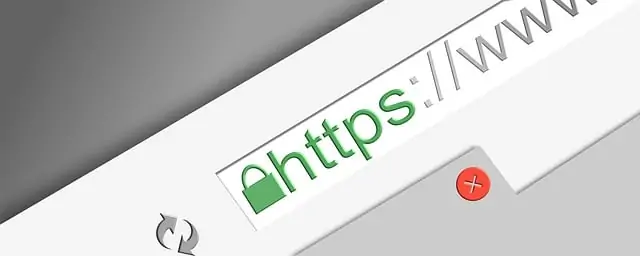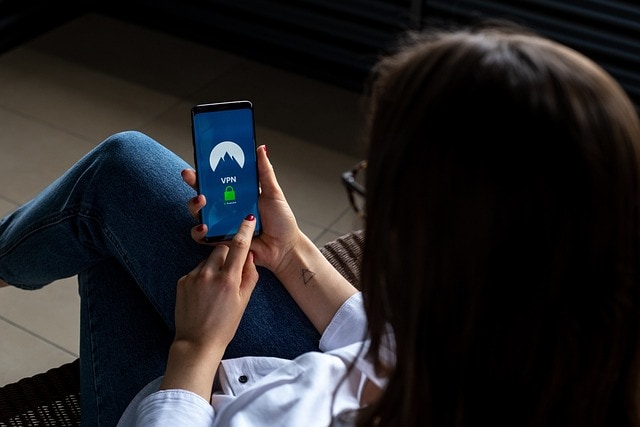This is getting very common again as international travel picks back up again after the strange events of the last few years. Many of us want to go abroad on holiday, but also take care of the usual admin stuff we normally do at home, like accessing our online banking to make transactions, send payments, pay off credit cards, check statements, and so on.
But is it safe to do so if we’re not logging in from our usual home on our own Wi-Fi network? Can we just access our online banking from anywhere and it’s still safe to do so? Can we log in safely on public Wi-Fi for example, at hotels, train stations, bars etc?
This is a question debated quite a lot online, but here’s a bottom line safe answer:
You can just log in as normal and rely on the green HTTPS connection security to protect your data, but it’s advised to add another layer of encryption on unknown networks.
When logging into really sensitive accounts like online banking in places you aren’t familiar with, it’s best to take precautions like using a VPN. There are plenty of viable free options available now such as ProtonVPN and PrivadoVPN, which can add an extra layer of security to your connection.
In other words, it’s better to be safe than sorry, and use a VPN when accessing any sensitive accounts such as online banking from abroad on networks you don’t control and can’t verify the safety of.
However, people risk tolerances are different, so we’ll cover the different levels of security of green padlock versus a VPN, together with some easy and often free options to properly protect your online banking data when on holiday.
Is It Safe To Log In To Online Banking Abroad?
This is a pretty common question around online security when on holiday. Does it really matter where you log into your banking from? Can you just access your banking as though you were still at home and still be safe?
It does depend on where exactly you’re logging in to your accounts. If you’re in a rented house or apartment that has it’s own Wi-Fi router, and you have the whole place to yourself or close to it, then it’s probably pretty safe to just log in as you would at home. If you’d rather access your online banking or other accounts as though you were still in your home country, then you’ll need a VPN, which we’ll cover in the sections below.
If you’re on any kind of network shared by a lot of users you don’t know, and especially public Wi-Fi networks like at hotels, hostels, airports, or other public places, then it’s not really recommended to just access banking or other sensitive accounts on an unprotected connection. You’re better off using a VPN for this, many of which you can get for free (see below).
There is a lot of debate on this issue, and some people argue that as long as you’re on a connection that has the HTTPS secure green padlock, that means the connection is already encrypted and you’ve got nothing to worry about wherever you are, even on holiday or in public places.

Another pretty simple retort I heard to these security concerns about using public Wi-Fi networks is that “no one cares about your life”. It made me chuckle, but it still doesn’t change the fact that I’d personally NEVER log into banking, email or any other sensitive account on a public Wi-Fi network without a VPN, especially when there’s quite a few legit, high quality free VPN options that are easy to download and get started with (more on this below).
The only time I’d possibly do this is if I’m renting an Airbnb all to myself that has it’s own router to connect to, but that’s it.
But other people’s security tolerances are different. If you’re happy with a HTTPS connection (pretty much ALL websites where you have to log in have this now), then this in theory should be safe (but Wi-Fi connections are still always inherently vulnerable to hacking, even using HTTPS). But if you want another layer of protection to your browsing when on holiday, there’s ways to do this, which we’ll cover now.
Using A Free VPN To Securely Access Your Online Banking On Holiday
Lots of readers have probably heard of a Virtual Private Network or VPN, and they can solve this problem of making your online connection secure if you’re on a network you don’t normally use and aren’t sure is 100% secure.
VPNs are software programs that route your internet traffic through secure, encrypted servers that can’t be snooped on or hacked by outsiders. In other words, they add another layer of (very strong) encryption to the already existing HTTPS green padlock protocol, to really secure your connection and basically make it un-hackable and totally anonymous. They can also change your apparent location, which is also very useful for accessing accounts – you can make it appear as though you are still in your home country even if you’re not.
Getting started with a VPN is easy – you just sign up either to a paid subscription of a reputable VPN provider (or download a free version if available – we cover both options below), install and boot up the program, select a preferred server location and connect. You’ve now got a very secure, strongly encrypted connection that can’t realistically be hacked or snooped on in the commercial world.

The good news here is that just for accessing banking or other secure accounts for short times on holiday, you DON’T necessarily need to pay for a Premium VPN, as there’s several good, reputable free VPN’s that can do that for you. You do need to be picky though and not just use any old “proxy”/VPN hybrid built into a browser, or a shared VPN. These are not safe as you don’t really know where your data is going.
You ideally need to use a (sometimes limited) free version of a reputable VPN service, and we’ve got some good, trustworthy options listed in the table below (links are referral links):
| Provider | Free Server Locations | Data Limit | More Info |
|---|---|---|---|
| ProtonVPN | 3 (USA, Amsterdam, Japan) | Unlimited | See here |
| AtlasVPN | 3 (USA East, USA West, Amsterdam) | 5 GB/month | See here |
| TurboVPN | 4 (USA, Germany, Singapore, India). | Unlimited | See here |
| ZoogVPN | 5 (USA, UK, Netherlands) | 10 GB/month | See here |
| Hide.me | 5 (Netherlands, USA, Germany, UK, Canada) | 10 GB/month (random server selection) | See here |
| PrivadoVPN | 10 (USA, UK, Canada, Germany, France, Netherlands, Switzerland, Mexico, Brazil, Argentina, New Zealand) | 10 GB/month | See here |
| Windscribe | 10 (USA, UK, Canada, Hong Kong, France, Germany, Netherlands, Switzerland, Romania, Denmark). | 10 GB/month | Visit site |
| Tunnelbear | 49 | 500 MB/month | Visit site |
And if you’d rather be able to select a server that’s based in your home country to access your online banking or other accounts, even if you’re on vacation thousands of miles away, here’s a breakdown for major English speaking countries:
USA readers – You’re in luck, as ALL free VPNs always have servers in the USA, sometimes in multiple locations, though not always in your hometown where you’d usually be logging in from. ProtonVPN or AtlasVPN would be my picks as they’re unlimited, but any of the above will work well. PrivadoVPN has the most free server choice within the USA (5 free locations – New York, LA, Miami, Washington DC, Chicago), but a 10GB/month data cap, so they’d be my pick.
UK readers – If you want a free IP address in the UK, then PrivadoVPN or Windscribe are the ones to go for – 10 GB/month allowance plus free servers in London. Tunnelbear also have UK servers but a much lower data allowance.
Canada readers – PrivadoVPN (Montreal), Windscribe, Hide.me and Tunnelbear all have Canadian servers on their free versions, so take your pick between any of those to have an IP address in your home country.
Australian readers – Tunnelbear is the only safe and reliable free VPN I am aware of with servers in Australia, but it does only have a free monthly allowance of 500 MB. This will be fine for banking, email and very limited basic browsing but not much else. Anything more than that and you’ll need a Premium VPN, which will always have servers in several Australian cities (see section below). PrivadoVPN did recently add New Zealand to their free server list.
Be aware that even if you do select a VPN server in your home country, you may still get login verification checks from your bank if it’s a long way from where you’d normally login at home (totally different city miles away from where you’d usually login from). My bank doesn’t do this but some still do, and some banks always do 2 factor authentication checks anyway, regardless of login location. The same goes for email providers like Gmail. Either way, always have your phone handy to receive any login verification codes when accessing online banking from abroad.
Using Premium VPNs To Access Online Banking Abroad
Although the free VPN option we’ve picked above are reputable, legit VPN brands that have free versions you can use, some people are understandably wary of using anything that’s free, for fear the safety and quality might not be as good. In this case, you can pay for a Premium VPN.
These do have advantages like being totally unlimited, 24/7 support, zero-log policies and unblocking streaming services. For short term use like on vacation, you can usually purchase subscriptions for a single month only from most providers, for around $5-15.
Here’s some good reputable, trustworthy options:
- NordVPN – $11.99 for 1 month
- Private Internet Access – $9.99 for 1 month
- ExpressVPN – $12.99 for 1 month
- ProtonVPN – $10 for 1 month
